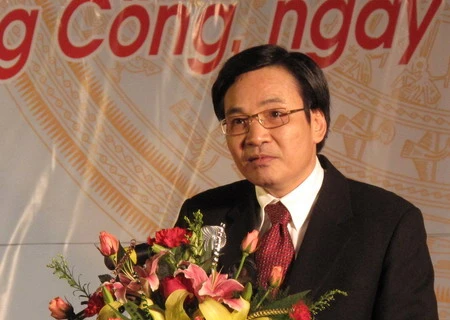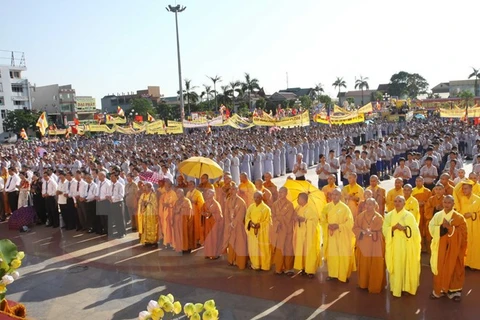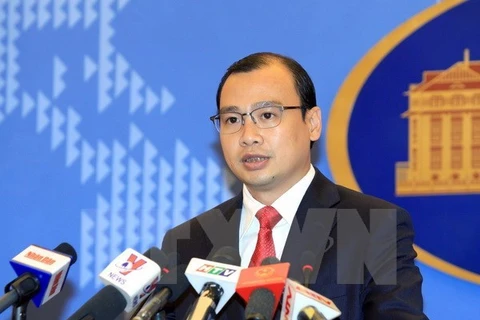 Buddhist followers and dignitaries attend a Buddha Birthday Festival in central Quang Tri province (Photo: VNA)
Buddhist followers and dignitaries attend a Buddha Birthday Festival in central Quang Tri province (Photo: VNA) The Vietnamese Party and State always give priority to ensuring human rights for all Vietnamese citizens.
Over the past years, they have issued and steered the implementation of a number of religion-related guidelines, mechanisms, policies and laws, providing the best possible conditions for local people to practice their right to religious and belief freedom.
However, the US Department of State’s 2014 International Religious Freedom Report, released on October 14, still reflects an old way of thinking, repeating clichéd arguments, which copied from those stated years ago, about the realities of religion and belief in Vietnam.
As usual, Washington D.C. is authorised itself to judge many internal issues of other countries in a subjective and lack-of-goodwill manner.
This year-released US Department of State International Religious Freedom report remains the same as its previous versions as it continues criticising Vietnam for limiting religious activities. Information it had is not new but highly subjective and one-sided. The realities of a lively religious life and the respect for law in protecting human rights in Vietnam, however, are the strongest rejection of those arguments.
When it comes to religion, Vietnam is a multi-ethnic and multi-religion country, ranking third in the world in terms of religious and belief diversity.
The 2013 Constitution of the Socialist Republic of Vietnam declares that: “Everyone has the right to freedom of belief and religion, and has the right to follow any religion or to follow no religion. All religions are equal before law. The State shall respect and protect the freedom of belief and religion.”
In fact, the right to freedom of religion and belief has been enforced effectively. Vietnam is currently home to 14 religions, 38 religious organisations, more than 24 religious followers, 78,000 dignitaries, and over 23,000 places of worship. The practice of religion and belief here is strongly thriving.
The State has continually created favourable conditions for the opening of schools and training of religious dignitaries. Thirteen schools owned by religious organisations are offering graduate programmes in religion and 40 vocational schools and junior colleges providing religious training. Meanwhile, about 13,000 people are studying at religious training schools and more than 1,000 people of religious organisations are studying Master’s and Doctorate degrees overseas.
Religious organisations have been busy with external activities as evidenced by a number of foreign religious delegations visiting Vietnam and numerous Vietnamese religious delegations going abroad in recent years. Optimal conditions have been created for domestic religious organisations to host important events such as the 2008 and 2014 Vesak celebrations and the Assembly of the Federation of Asian Bishops’ Conferences.
The Gyalwang Drukpa, the head of the Vajrayana Buddhism’s Drukpa Lineage, has made seven visits to Vietnam. In his most recent visit in this year’s September, he involved in various religious activities such as chairing ceremonies praying for global peace and national prosperity.
The majority of religious followers have been enthusiastically engaging in social activities and united to lead a good religious and secular life. Only those who abuse the right to religious and belief freedom to violate law, sabotage the Vietnamese State or conduct activities against the Party and State policies, and spread superstition and backward customs will be punished in accordance with legal regulations like other citizens.
The US Department of State report clearly does not fully reflect the realities of religious and belief freedom in Vietnam. It is completely unhelpful and does not benefit the growing comprehensive partnership between Vietnam and the US.-VNA
























